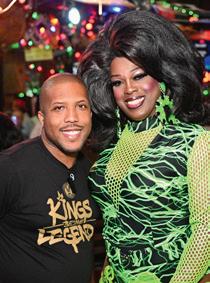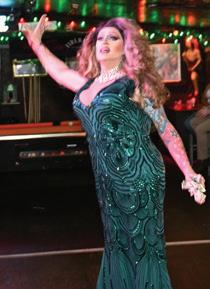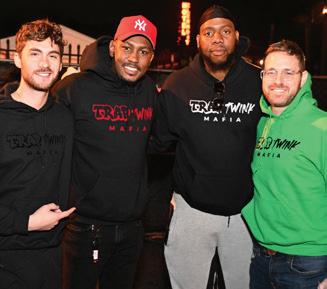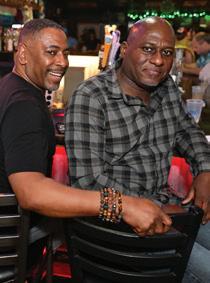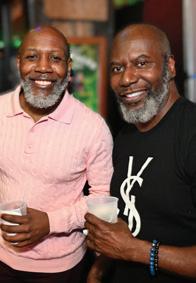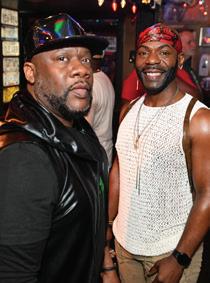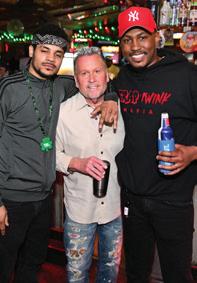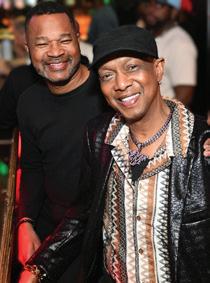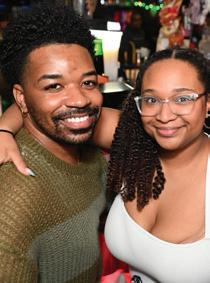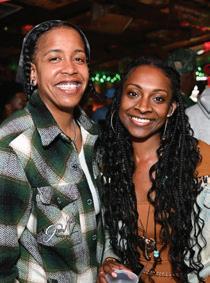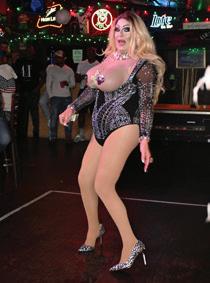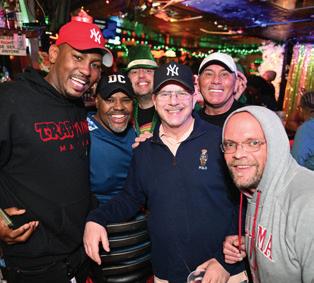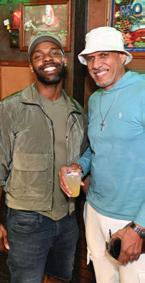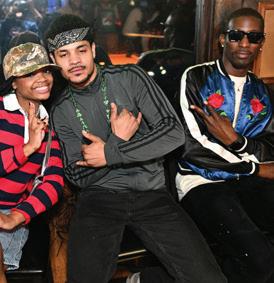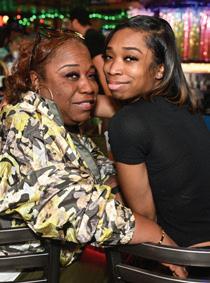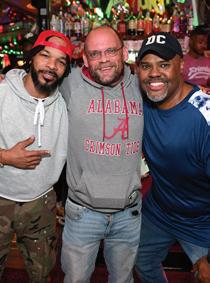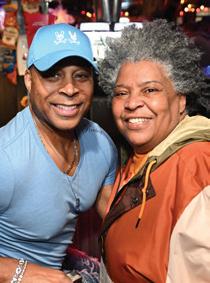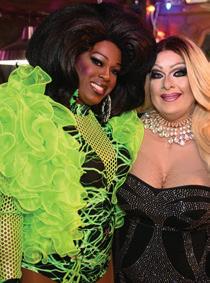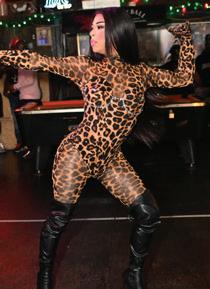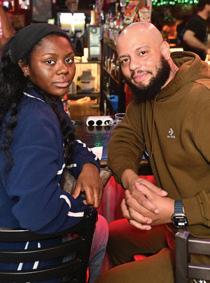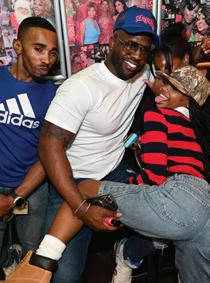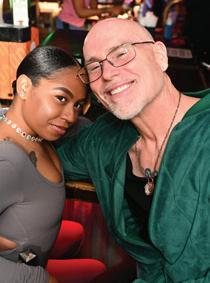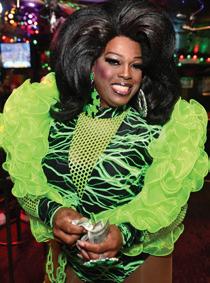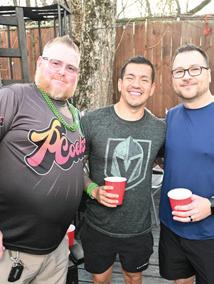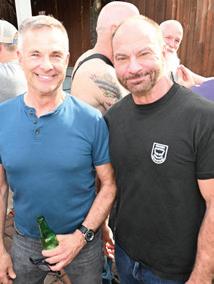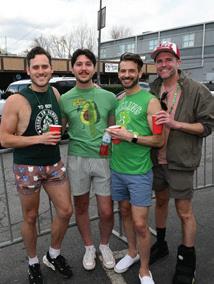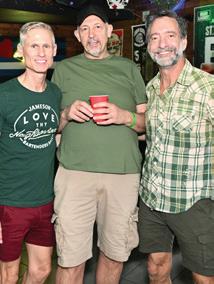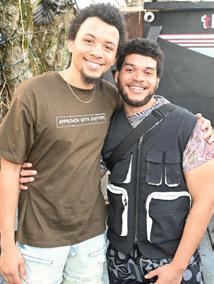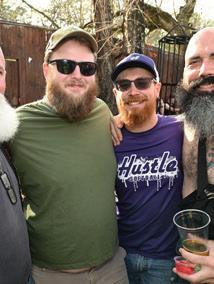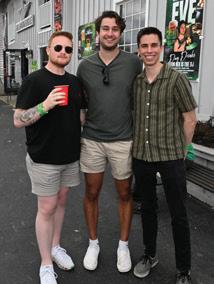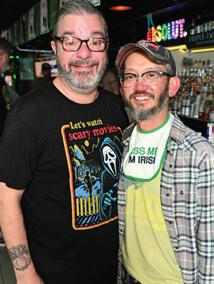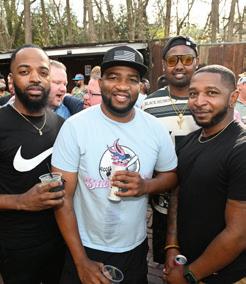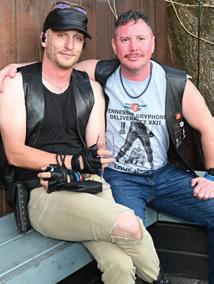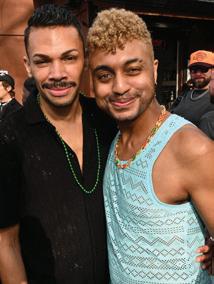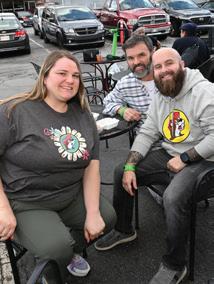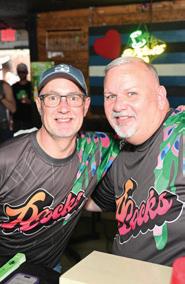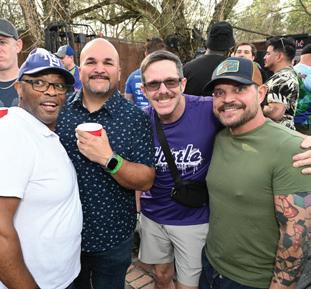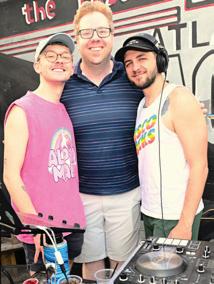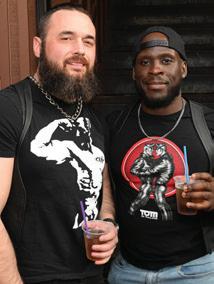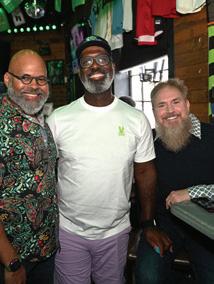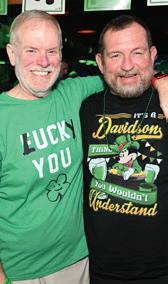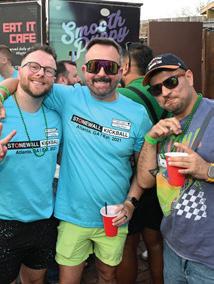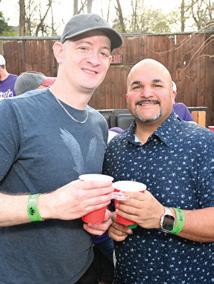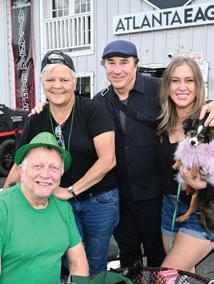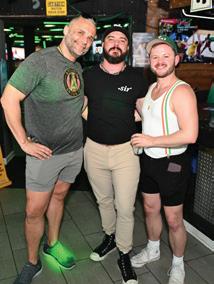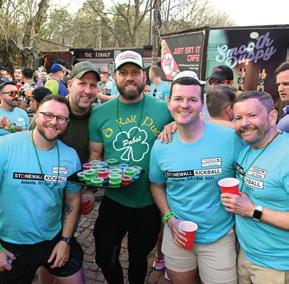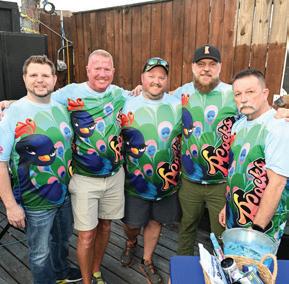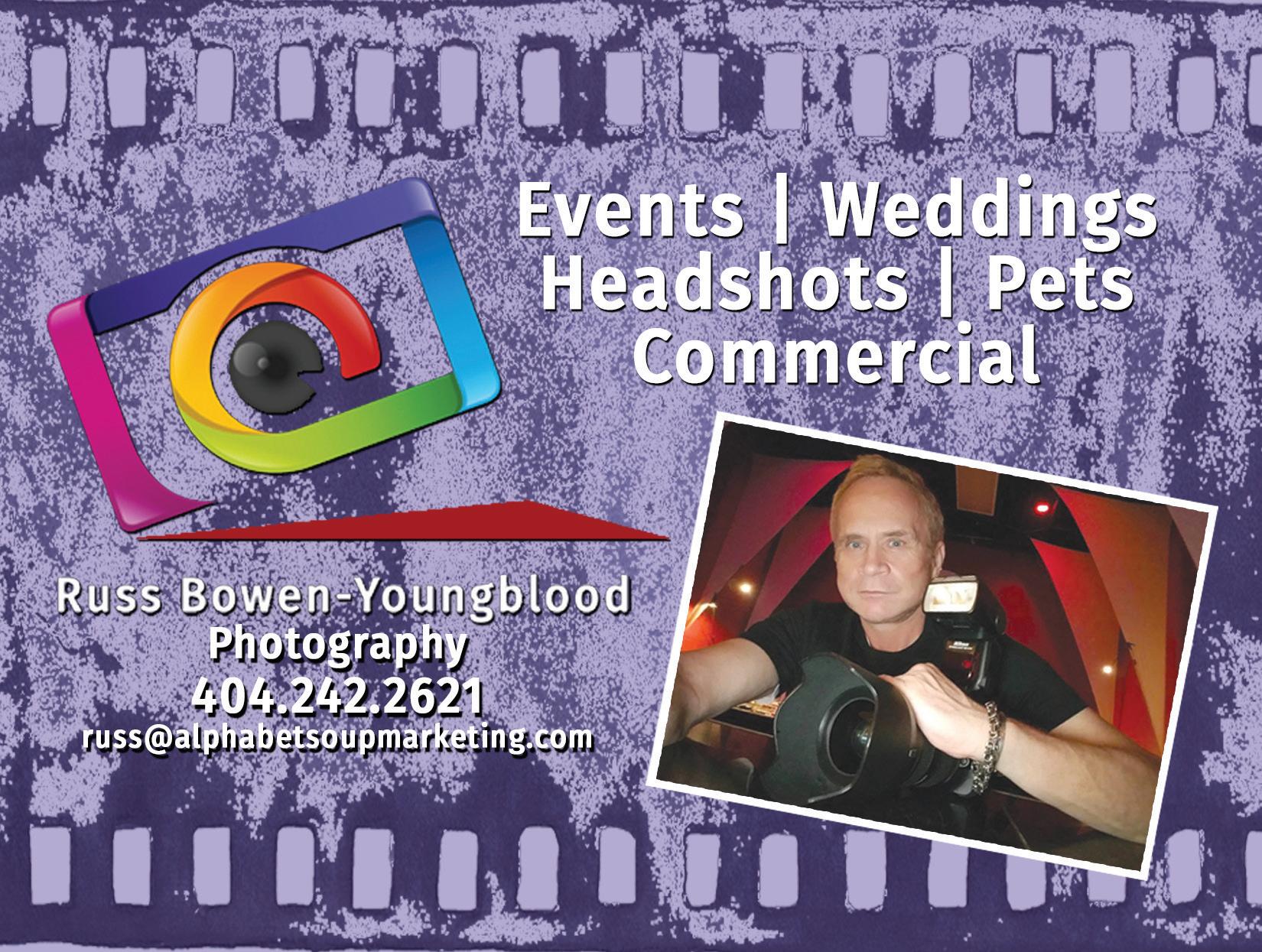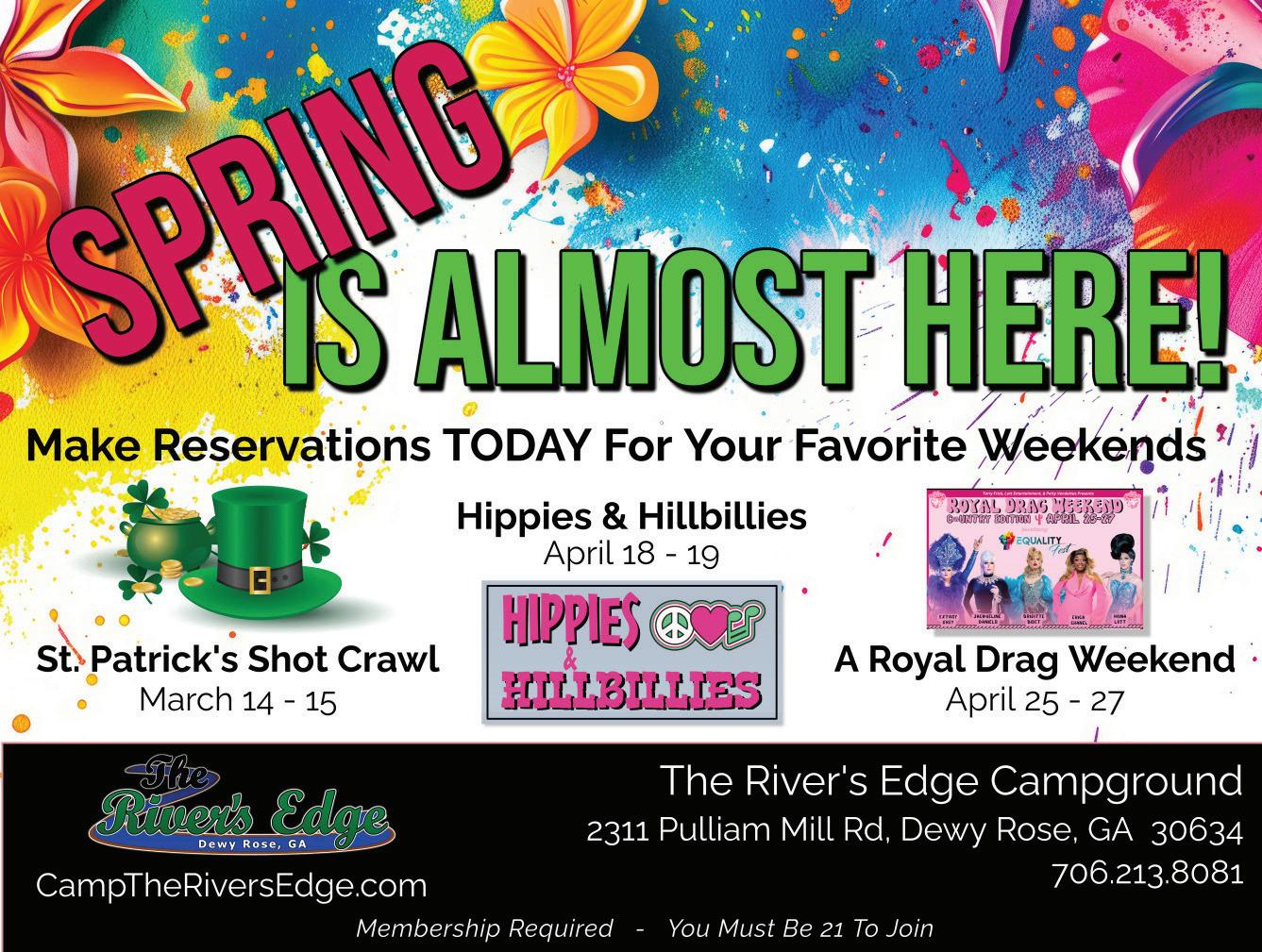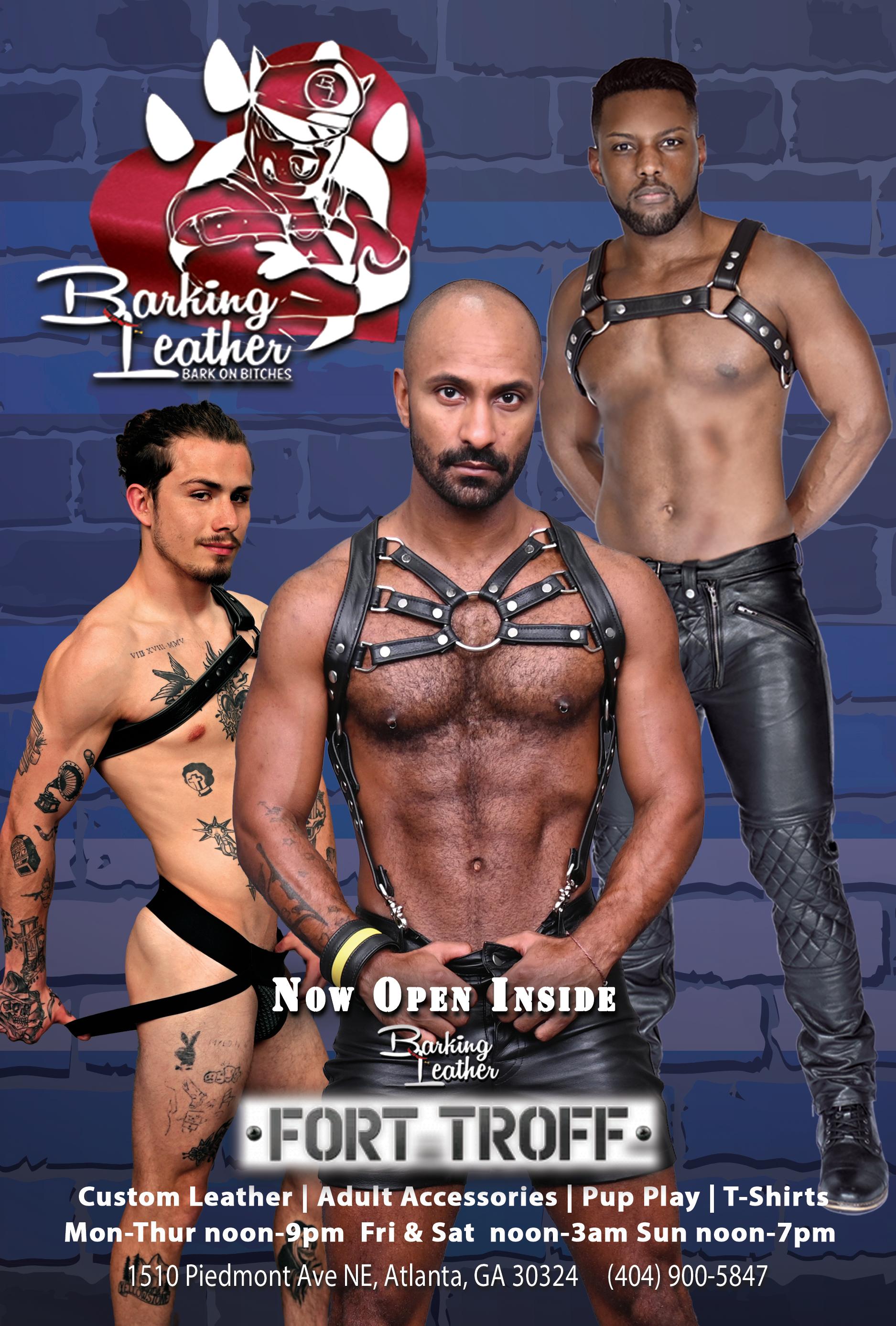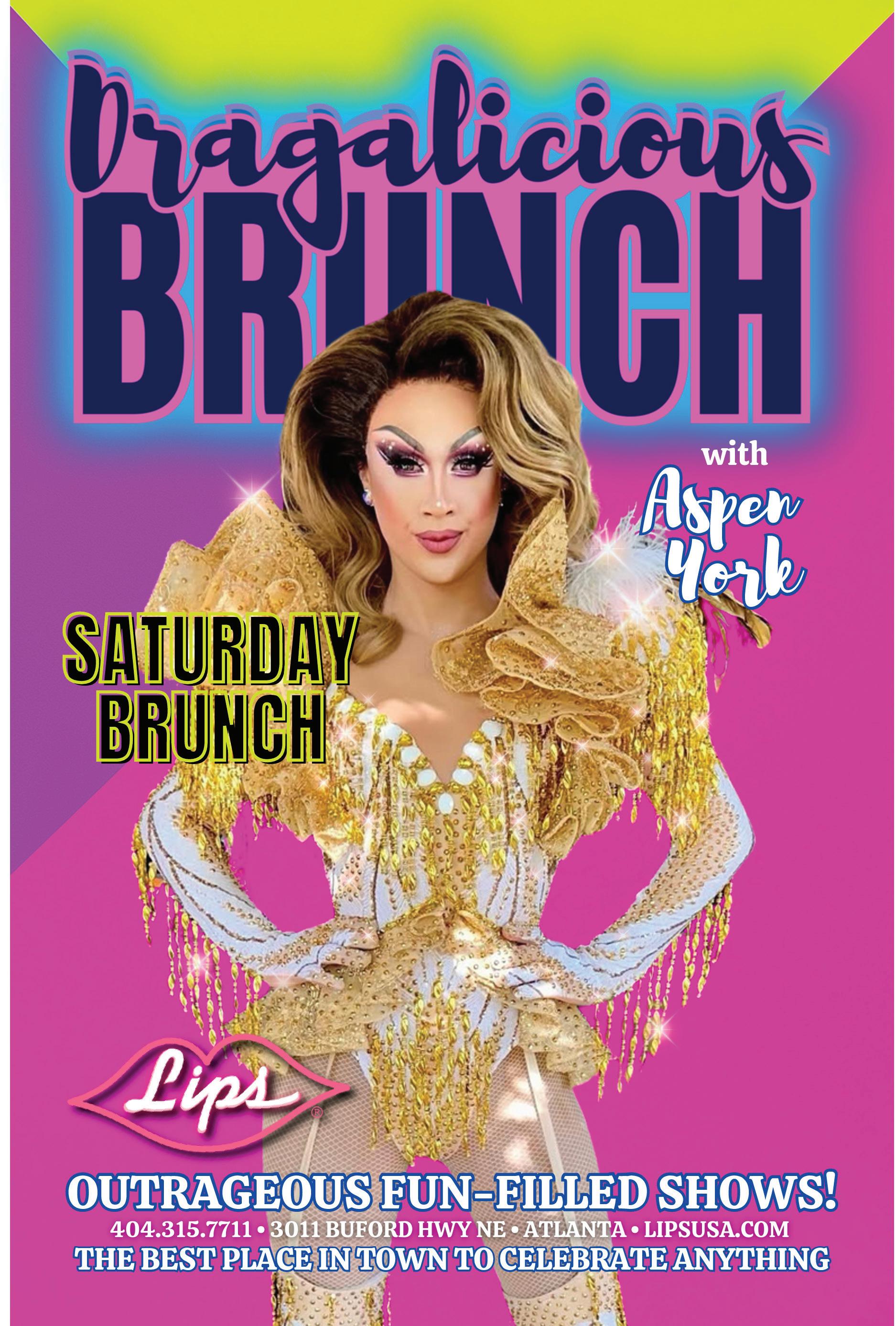

























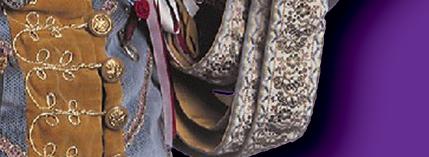
























































































































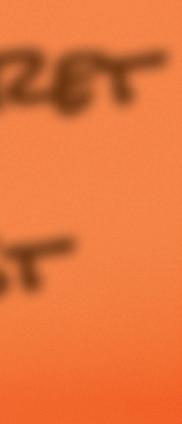
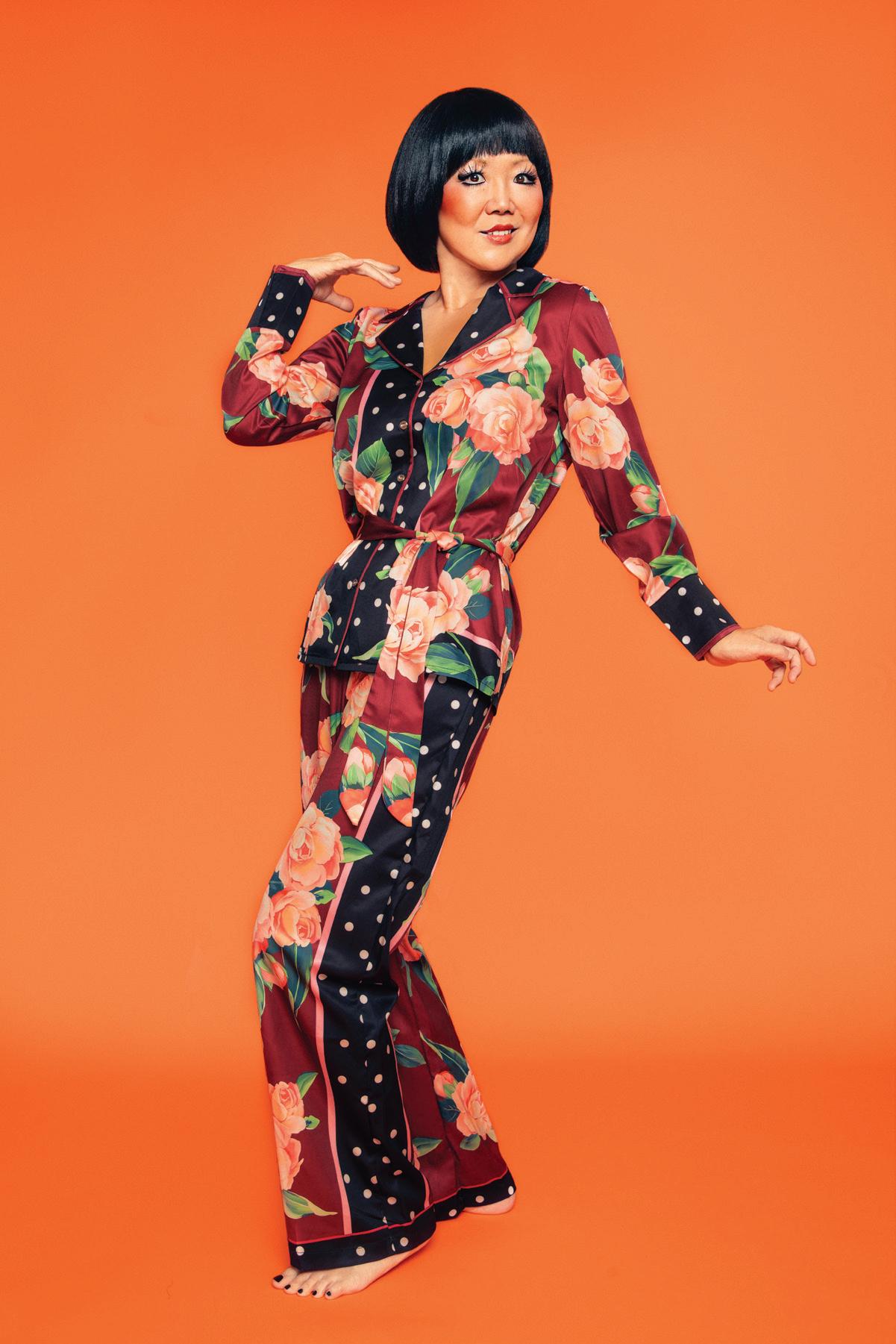
By
Margaret Cho’s new album, her first in eight years, might take some people by surprise — especially those who don’t know that her talents stretch far beyond comedy. But if you’ve followed her 30-plus-year career, one deeply intertwined with LGBTQ+ activism, the inspiration behind one of the LP’s standout tracks, “You Can Be You,” will ring all too familiar.
The song is a tribute to the trans and non-binary communities, and it was written in response to the tragic 2024 death of Nex Benedict, a trans non-binary teen. Their death, a consequence of systemic failures, left Cho shattered. But in the face of that grief, Cho turned her heartbreak into something powerful — a song that’s as much about mourning as it is about defiance. The message is simple but profound: “You can be you.”
Cho, 56, has always used her voice — whether it’s the sharp humor that built her career or the unflinching activism that runs through her bones — to break down barriers for marginalized groups. Her new album, rooted in ’90s female rocker-folk vibes (think Lilith Fair with a modern twist), also taps into the cultural power of gay pop. It’s a collection of songs that feel both deeply personal and politically charged.
This isn’t Cho’s first foray into music. Her 2010 debut album “Cho Dependent” earned her a Grammy nomination for Best Comedy Album, featuring collaborations with big names like Fiona Apple, Patty Griffin, Andrew Bird, and Tegan and Sara. That project set the stage for what would become a unique blend of comedy and music, with Cho tackling serious issues in her own inimitable style.
Now, with her third album — following up “American Myth” from 2016 (which also earned her a Grammy nomination, bringing her total to five) — Cho shows how much she’s evolved as both an artist and an activist. The new album, released under her own Clownery Records label, feels like the culmination of decades of growth. On the title track, Cho plays her signature “mandotar,” a double-neck mandolin-guitar hybrid that adds a personal touch to the sound. I recently sat down with Cho to talk about the ongoing fight for LGBTQ+ rights and the role comedy plays in today’s volatile political climate. Having lived through the AIDS crisis and the Reagan years, Cho’s perspective is priceless. She knows exactly how far we’ve come — and how far we still have to go — and how music and comedy remain essential tools to help us through it all.
As one of the most fearless and consistent LGBTQ+ advocates of the past four decades, your activism has spanned multiple eras of
struggle and progress. How does your unique perspective help you contextualize today’s challenges for the community?
We’ve had this before and we were fighting a deadly pandemic. During AIDS, the environment was the same. We had even less rights and we were dying from the inside out with no help from the government who were actually spreading this idea that we brought this upon ourselves — it was God’s will.
We need to just be assured that we are OK. We’re going to be OK. It’s just a really horrifying time. I don’t know exactly how it got here, but we don’t have to comply with anything. We don’t have to go along with the hatred. We can actually just be rooted in our self-love and take care of each other.
So ultimately this is not the worst of it. It could be so much worse, as it was so much worse then. How much of our community we lost at that time, and the incredible sense of hopelessness that existed. But now we have made such huge political strides because of that era, because of the intense activism from ACT UP and all those wonderful grassroots organizations. Now, we already have a foundation of political action that we’ve built for 60, 70 years and longer. So there’s hope. The strategy of the right is to overwhelm us with this idea that, well, it’s over. Woke is over. But it’s not.
Or that woke is new.
Woke is not new. It’s never been new. It’s been around as long as unwoke.
Reflecting on the ’80s, what brought you hope then and what is bringing you hope now?
Well, humor. Humor and the way that we make strides with what we have, and we’ve always had drag to rely on during that era. In the ’80s, there were all sorts of drag shows that were calling attention to what was going on. There was also punk-rock shows. We had Rock Against Reagan and Rock Against Racism, where you would see bands like the Dead Kennedys and you’d see just incredible activism within punk rock and other music and all these communities coming together to support each other. That’s what gave me hope. The die-ins were ACT UP, and people were laying in the street to just show, We are dying, we are dying. We’re going to stop everything and show everybody what’s happening. So the inability for the mainstream to deny us life was the fighting in so many ways. So I think the quilts that we see now are a celebration of all of these lives and put to fabric, put to this very old time-y American art form. Those kinds of things I think collectively brought us to where we are. So that
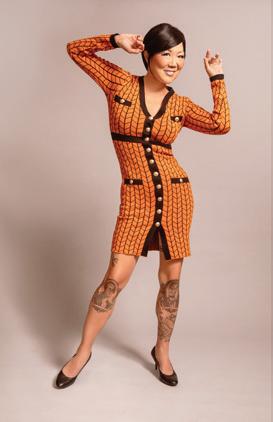

gives me hope. And what gives me hope now is humor. It’s activism, it’s life, it’s the fact that we are protesting in our own ways and resisting in our own ways, on social media and everywhere.
This album feels deeply connected to a sound you truly love, with clear influences like Patty Griffin. I’m definitely picking up on those ’90s women rocker-folk vibes, especially the Lilith Fair energy. What inspired you to create this record?
You know when VH1 had two channels? They would show all of the coffeehouse artists. I loved that. I love that era of Ani DiFranco and, of course, Patty Griffin. She is amazing and one of my idols. So yeah, I wanted to do an album that was very melodic, but also kind of power pop, and then also hearkened back to ’90s women, whether that was bands like The Breeders or Belly or anything that was kind of just Lilith Fair. Anything like Sinead O’Connor. I actually did a show once with Sarah McLachlan at a rock festival. I tried to pass her a filthy roach. We were all smoking weed and I tried to pass her, the beautiful Sarah McLachlan, a nasty roach. She looked at me and was like, no, thank you. She looked at me like I was one of those animals in a shelter. Like I was a little Maltese with one eye. Like, “That is so sad, but also so darling that you were trying to pass me this nasty roach.” [Laughs.]
I love to make music and I really worked hard on my voice for this. I was really excited to be able to finally compose quite a few tracks. I’ve usually relied on musicians to help me compose music, but this is the first time that I actually came at it as a composer, which was very new, so I’m really grateful for the ability to do that.
You described the song “Lucky Gift” as gay pop. How do you define gay pop?
I hope that that song gets on the soundtrack of a film like “The Sisterhood of the Traveling Pants.” It should be in “Legally Blonde 5,” when they’re in the car, hair blowing in the wind, in the convertible — that kind of vibe. To me, gay pop, of course, is JoJo Siwa, but also Chappell Roan and Sabrina Carpenter. It’s Tate McCrae, who I love. It’s the great pop divas, but also
the gay pop diva goes deep. It’s Ani DiFranco, original gay pop, or even Courtney Love. Maybe it’s Dusty Springfield as well, or Nancy Sinatra and Tracy Ullman. Tracy Ullman is where I got sort of the idea of the look. I love her and I love when comedians do music and good music in particular.
So, for me, gay pop is essential. I think it’s the way that, as queer people, we can keep on surviving — with our pop music. We need a Beyoncé, we need a Taylor. We need our pop divas. I think that as gay people, we need our pop divas so much more. It’s like a religion. They almost are like saints. We go to our pop divas for comfort, but it’s solace and it’s sanctuary. It is true relief. That’s what we need our pop divas for, because we have to deal with so much in life that it’s a blessing that we can get so much from their art.
Your song “You Can Be You,” an anthem for non-binary and gender non-conforming people, is especially poignant right now. What’s the story behind that song?
That was written the day that Nex Benedict died. Nex was a trans non-binary teen who was so failed by the state of Oklahoma, by the board of education, by the school and by the staff at the school. They were essentially murdered by the system there, and so the way that I really grieved their death and the inhumanity of people after — continuing to misgender, continuing to make fun of this person, continuing to lie and use it for this political advantage somehow and to further dehumanize our community — I couldn’t sleep for days. I was so angry and so disgusted by what we had become as a nation, and so I decided to work on the song. I really wanted to say, “What would I say to them?” “You can be you,” the most powerful thing. That no matter all of this inhumanity that’s existing, you can still be you in the face of that. So that’s, for me, a really special song and one that I hope that all of our baby gays get to listen to and gain something from.
You’ve shattered countless barriers for both Asian American and queer performers. What advice would you offer to this generation of marginalized emerging artists who are working to carve out space for themselves in a political landscape that seems to be deprioritizing them once again?
Well, we need them. We need more voices. We need more people to fill our ranks. It is almost like a draft. I want to draft all of these young queer artists to come and join, and we need them more than ever. Artists are the only people that can fight this. I think art is so critical, and when art is used as a weapon, it is so powerful, and so we can do this, but we can only do this together. And
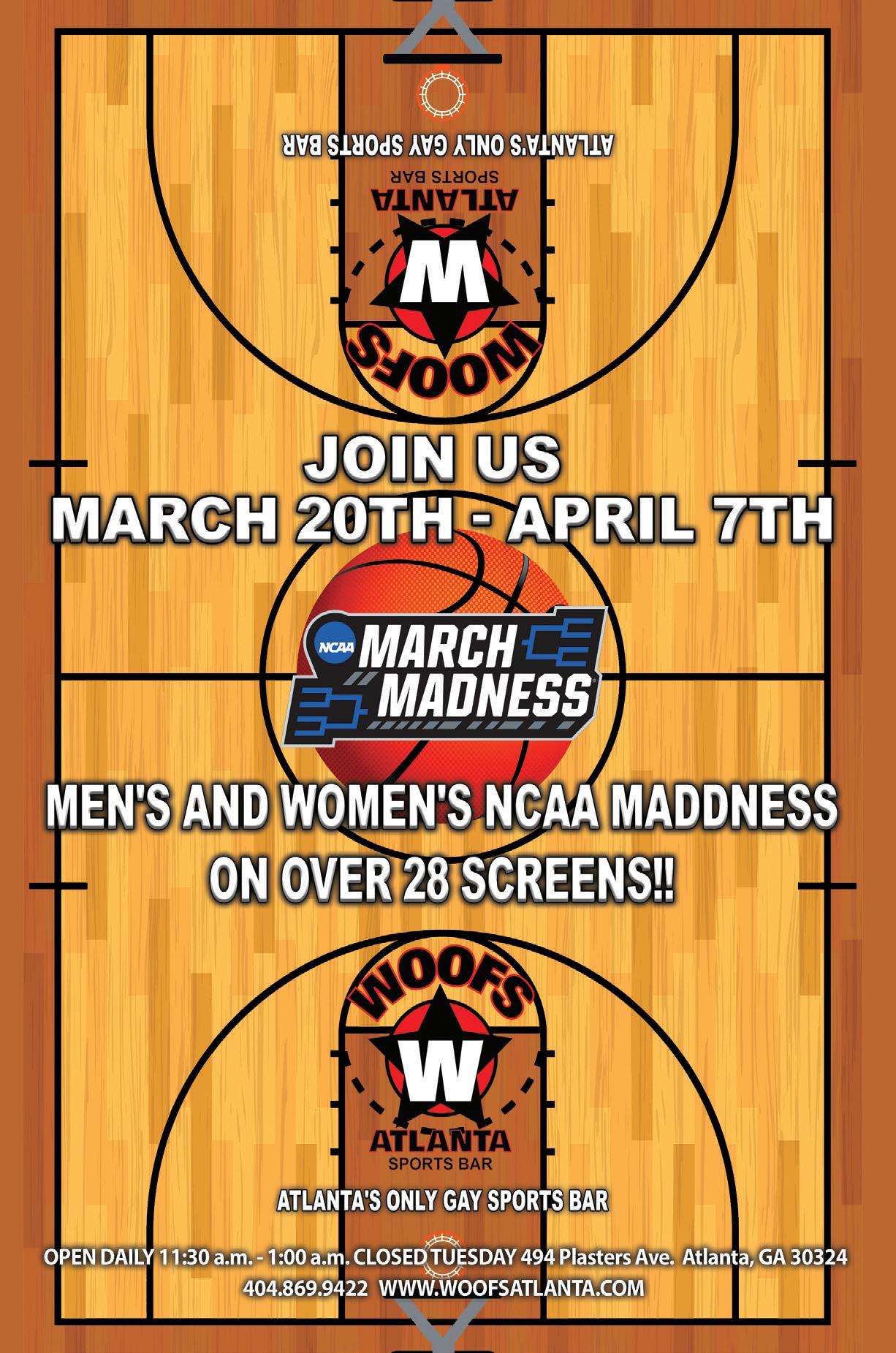

I think about people like Alok [Vaid-Menon], who is so special because they are coming at this with such compassion, wit and beauty — undeniable beauty — and I’m so impressed by an artist like that. They are, to me, on the forefront of how we’re going to change minds and change views and change people because their views are so astonishingly poetic that it is a combination of poet, laureate, comedian — and supermodel! I’m really excited about Alok.
You were a major part of the 2024 documentary “Outstanding: A Comedy Revolution,” which puts into historical context exactly what comedy can do for a political movement. How do you think comedians such as yourself will meet the moment now and in the next few years?
Well, I loved “Outstanding,” and thank you. I love that I got to spend time with Robin Tyler [the first out lesbian on national TV]. I’ve known Robin personally for a long time, yet I had no idea about her career before I even met her as a friend. These older lesbians hold multitudes. [Laughs.] She did so much and I had no idea because she’s so modest. Also, the film allowed me to spend a great deal of time with Sandra Bernhard, who is my North Star, my friend. I’m a Bernardologist, so every time I spend time with her, I’m like, oh, don’t forget, this thing you did had a huge impact. To me, that film is such herstory and also allowed me to reconnect again with the new generation of people like Joel Kim Booster, who’s my biological son.
You both being in “Fire Island” together was such a highlight.
Yeah, I love that film. It’s where I gave birth to him shortly before we made the movie, [laughs], so it was a really great experience for us to do that as mother and son.
It was an easy birth, right?
[Laughs.] It was such an easy birth. It was a water birth. We did it right off the coast of Fire Island. I was in the bay and I just squirted him out onto Cherry Grove and he came onto the rocks and we dried him off.
He was quite literally born a comedian.
[Laughs.] My biology! He and I really laugh because it is like biological — we look the same! Also, we have a really crazy ability to show our bodies at all times. [Laughs.] His body’s much better than mine, but I’m going to show mine anyway. But I love that film, and I can’t wait to see Andrew Ahn’s new film, “The Wedding Banquet.” I love Andrew. They’re all children. Andrew, Bowen, Conrad Ricamora and, of course, Joel.
Comedy is being challenged in this current political era. How do comedians interact with this era?
It’s actually a good opportunity to use comedy as a weapon, as our own battering ram, because the thing about the Trump administration in
particular — and Trump, Elon, the bro-oligarchy — is they hate to be made fun of and they wish they were funny, but they’re painfully unfunny. No matter what attempt that they do to make any kind of joke, it falls flat, constantly, and they know that. So that’s why Trump has always attacked comedians. That’s why he wants to have control of the FCC because he wants to make sure that these late-night hosts are not talking about him, but they will never stop because they know he hates it. Elon is so painfully sensitive about being made fun of, which is why it’s so imperative for all comedians to really rise to the occasion, and you have to use it like an onslaught. Use shock and awe, as many jokes as possible, at their expense because that’s the one thing they can’t pay for. No amount of money in the world is going to buy a sense of humor. It’s just the best.
It’s really a good opportunity to just batter them senseless with a barrage of jokes that they’ll never recover from, and that’s our form of war. In my mind, I have gone to war in my comedy. I have a strategy. It’s almost military. I wake up every morning and I write a joke about what’s happening, and that really sets up the rest of my day of how I’m going to go about it, and then I try it out where I go, and I think it’s really soothing [laughs]. So comedians are going to be attacked, but they can’t kill all of us. They can’t imprison all of us, and even if we’re sent away, whatever they do with us, they’ll be another one to rise up in our place.
You’ll just give birth to more comedians.
[Laughs.] I’m freezing all of my eggs now to make sure we’ll have so many. All of my biological children will do it for us.
You launched the Live and Livid tour last year before the election. You’ll be resuming that tour post-election, with Trump now definitively as president. How will that change the show?
Well, there was so much of a sense of hope. I think what’s so disappointing is that the HarrisWalz campaign allowed me to have hope. I am so disappointed, but then you can use that as an advantage in writing and in responding. I just loved working on the Kamala campaign. I loved being a part of that energy, and I don’t regret having hope. I don’t regret having hope for this country. I still have hope. And the thing about it is that it wasn’t really that much of a loss. If you think about it as a loss, it’s not really a loss. It wasn’t a defeat in the sense that it was such a minimal defeat, and that only became real because so many people didn’t vote and the fact that it was literally won on anti-trans rhetoric. It was them really going after just the idea of a trans community. Just the idea of a they/them.
And so, to me, that is a personal attack.
Is there less hope in the show now? More lividness?
It’s more about finding hope now and discovering where that strength is. It’s not that there’s less hope, but there’s more of a need to find the strength within and also more of a need to get real crass and bring out — and unfortunately, I have to use it — the big guns.
Gloves are off. Really. I’m going for it. I’m really letting them have it, especially [Speaker of the U.S. House] Mike Johnson. Mike Johnson, for some reason, has really become my special “Ohh, I hate him” [subject]. [Laughs.]
He’s become your comedic muse?
[Laughs.] He’s become my muse. I’m really giving it to that little bottom. I’m so into it. It’s just brought out for me this animal rage that I appreciate that I haven’t had. I didn’t have it during the Bush era. Didn’t have it, of course, during Obama, who I love. Even during the first Trump era. For me, I’m reaching all new lows. I’m below the belt. Which I’m excited about, personally, as an artist. This has drawn out something of a beast.
In this era, we really have to be dom tops — or at least more vers.
You have to be more vers. And vers tops are really in need at this point. [Laughs.]
For the next four years, at least
In these uncertain times.
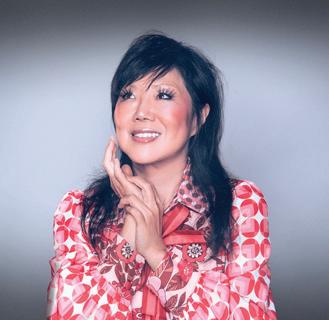

Chris Azzopardi is the Editorial Director of Pride Source Media Group and Q Syndicate, the national LGBTQ+ wire service. He has interviewed a multitude of superstars, including Cher, Meryl Streep, Mariah Carey and Beyoncé. His work has also appeared in The New York Times, Vanity Fair, GQ and Billboard. Reach him via Twitter @chrisazzopardi.
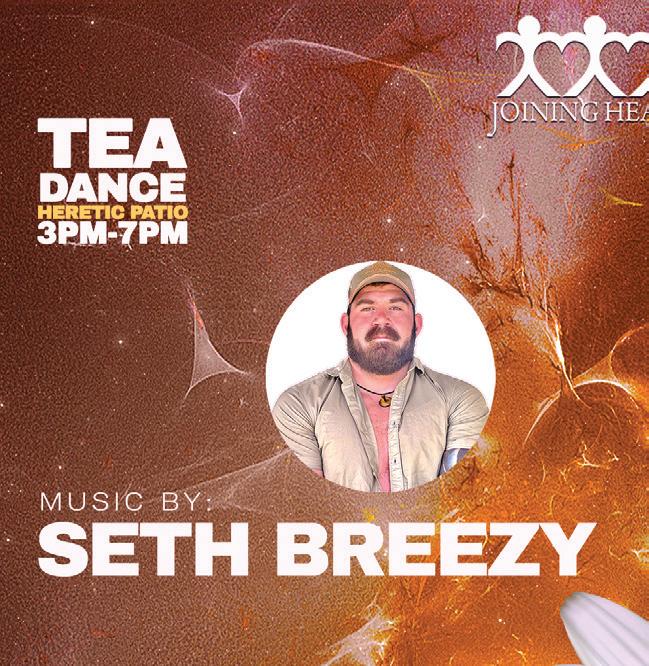
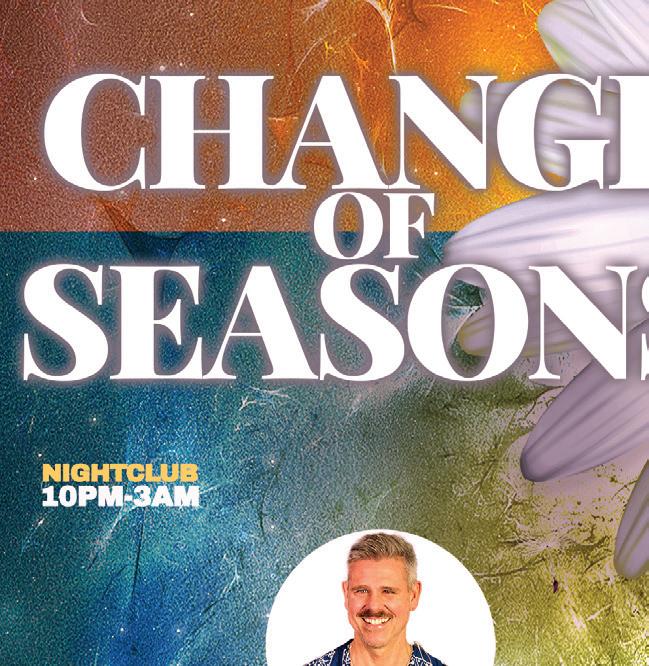
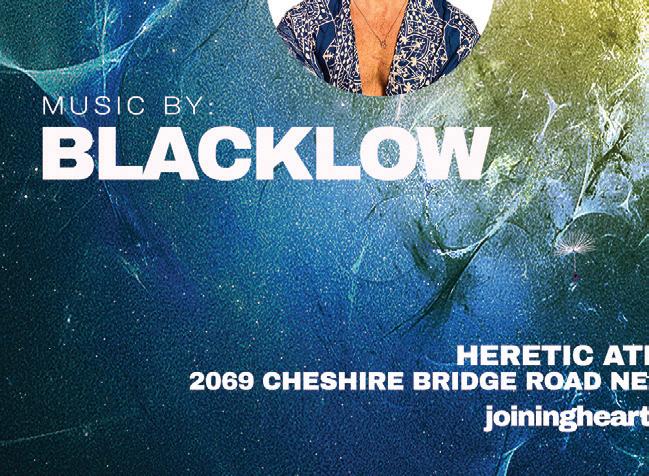
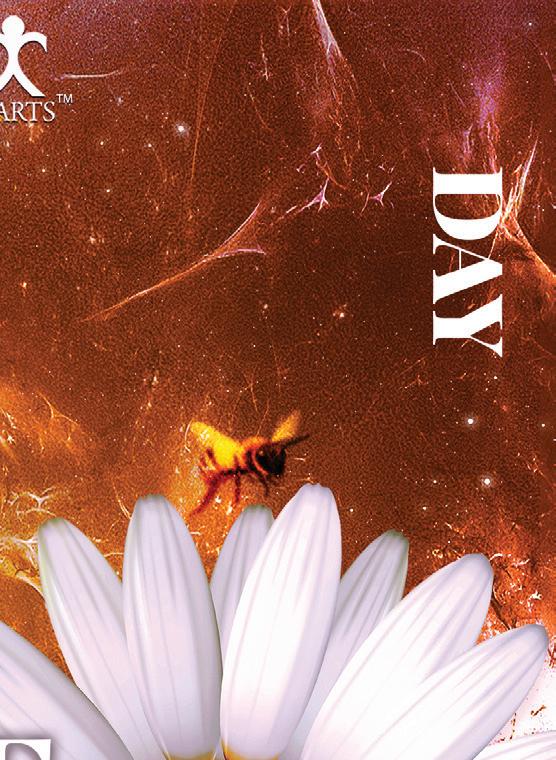
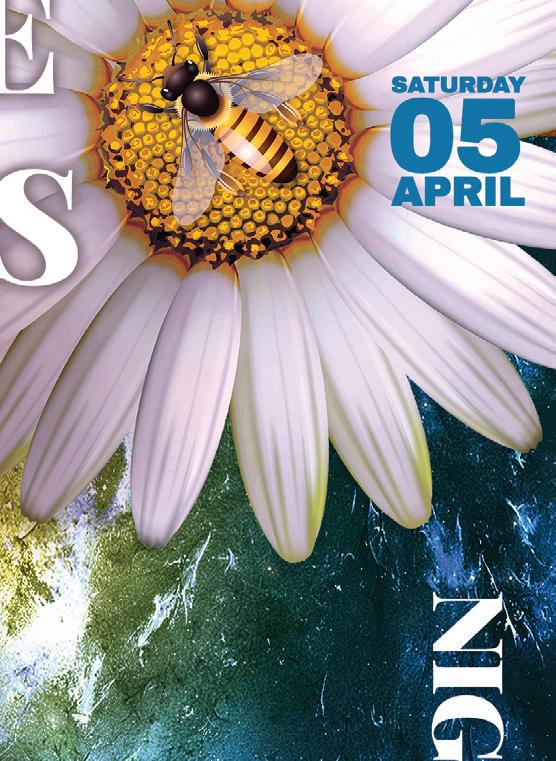
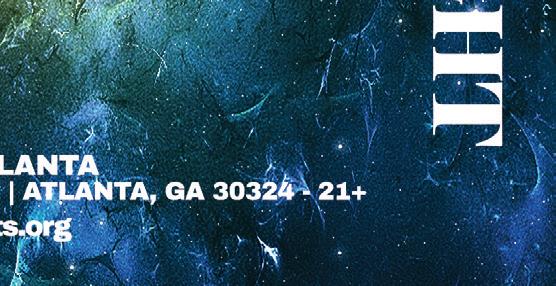
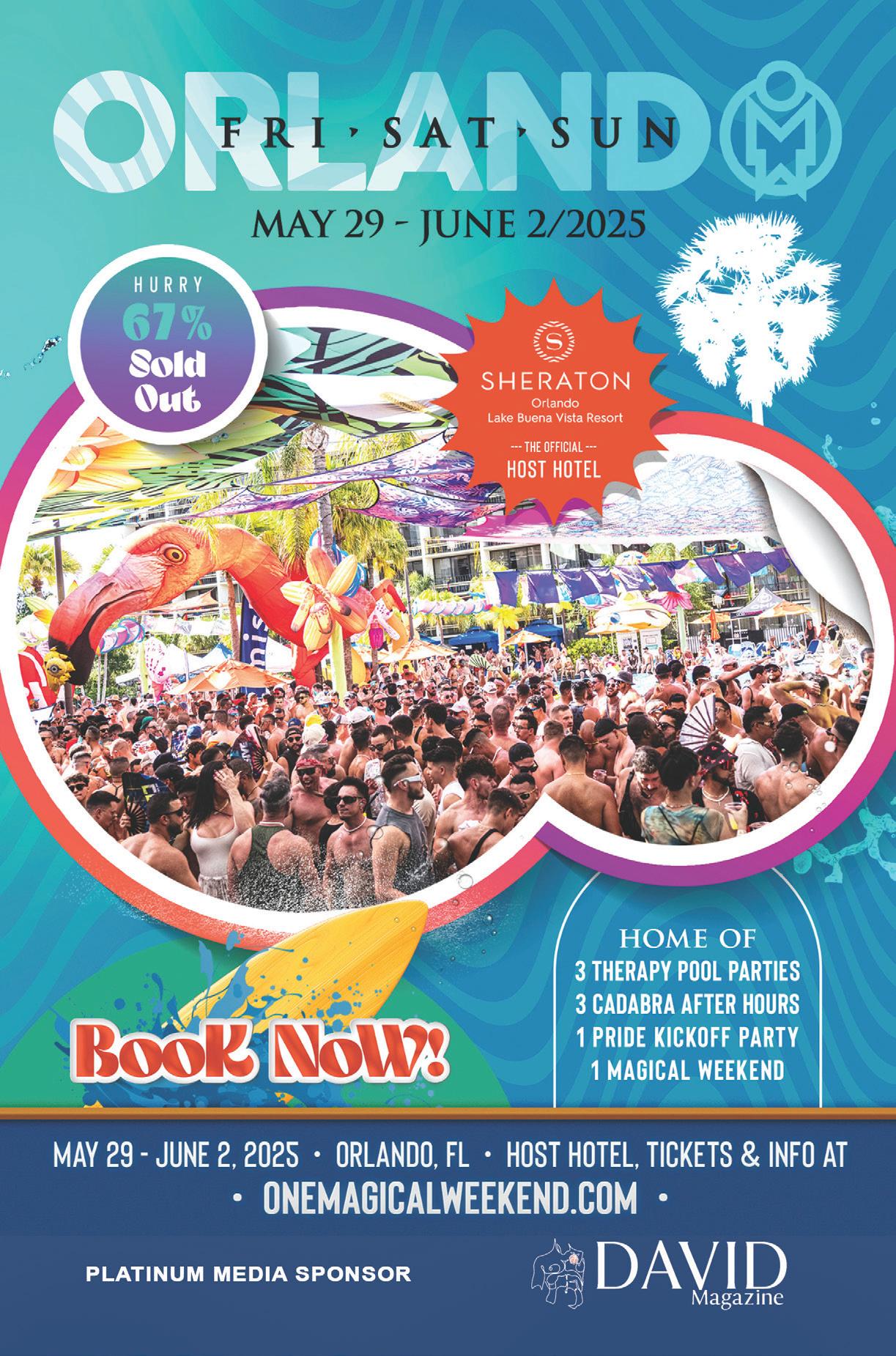


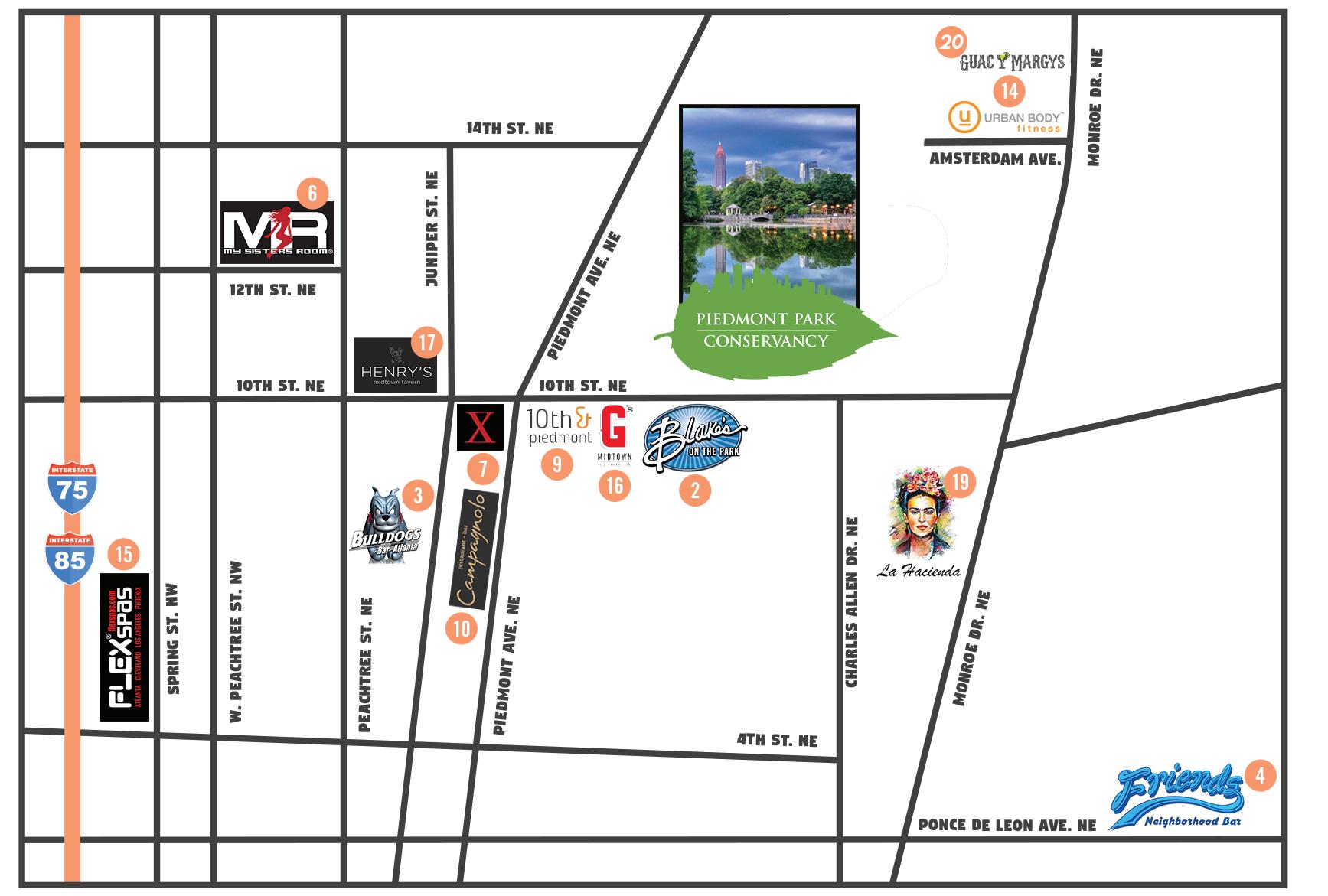





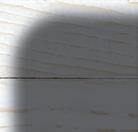

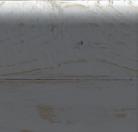




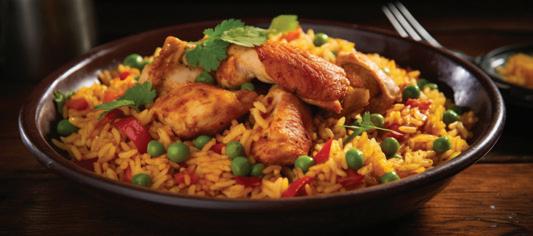







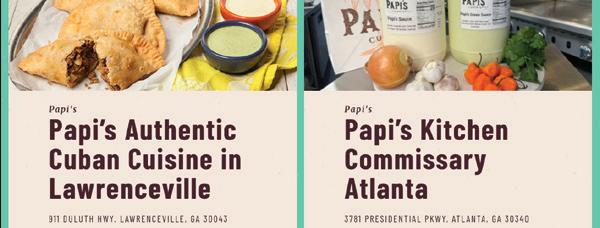










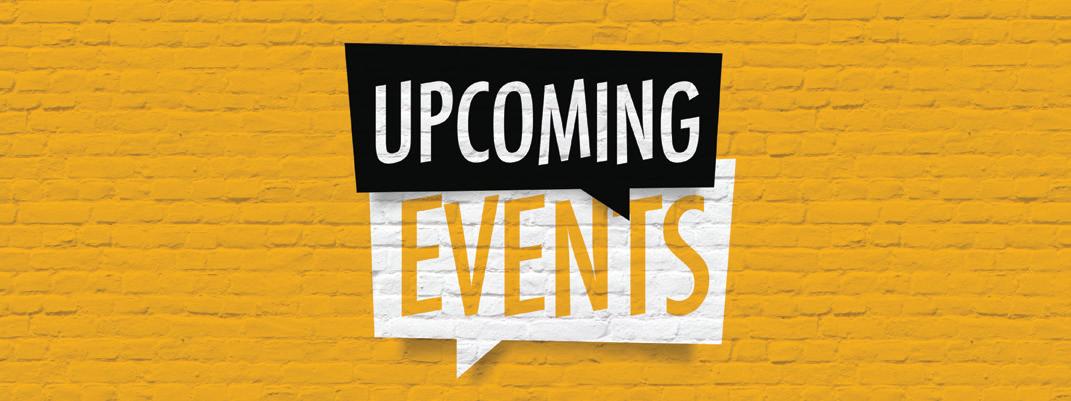



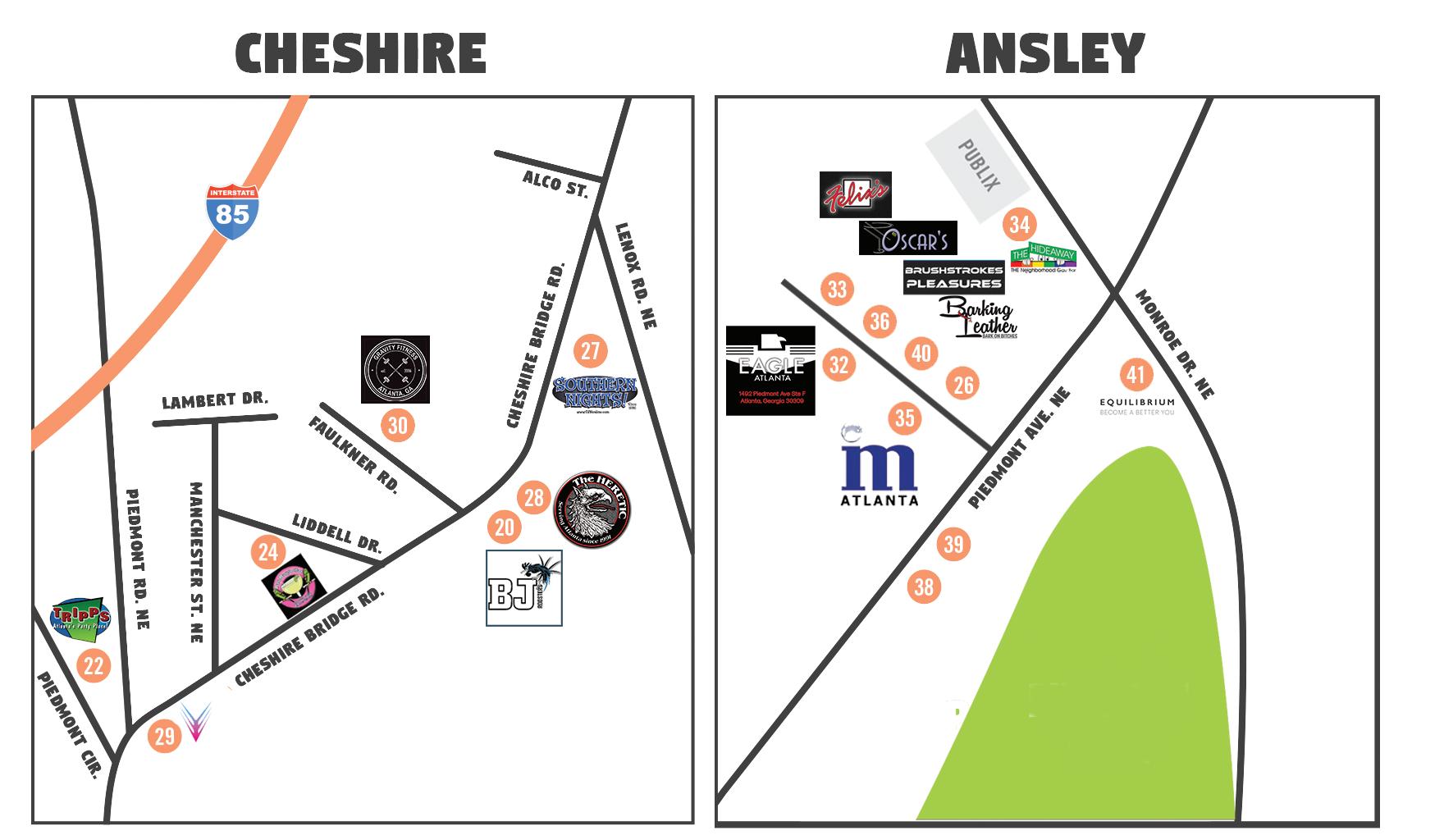
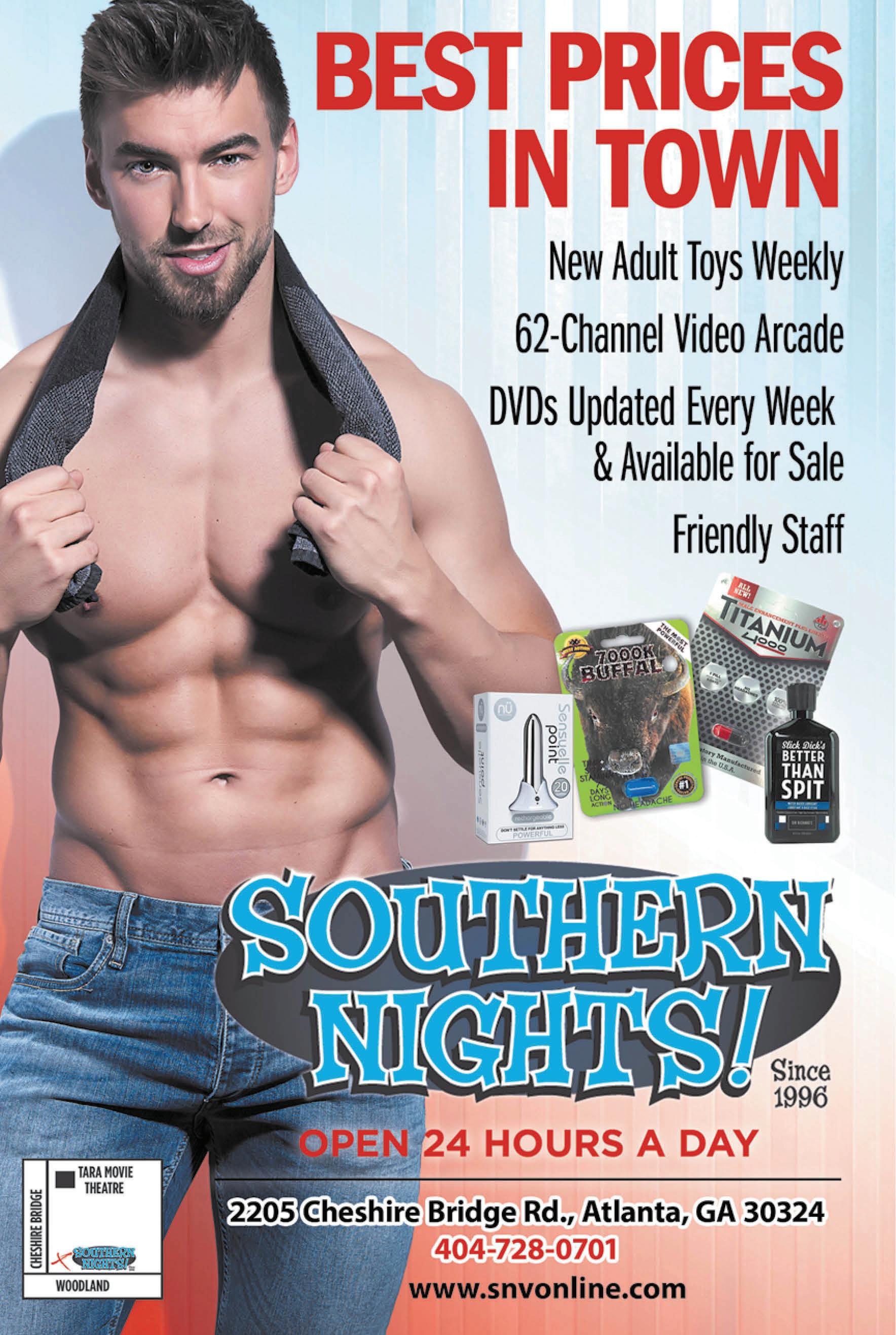
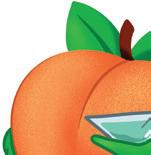


BARS & CLUBS MIDTOWN
BLAKE’S ON THE PARK blakesontheparkatlanta.com 227 10th St NE
BULLDOGS 893 Peachtree St NE
FRIENDS NEIGHBORHOOD BAR friendsonponce-atl.com 736 Ponce De Leon Ave NE
MY SISTER’S ROOM mysistersroom.com 66 12th St NE
X MIDTOWN xmidtown.com 990 Piedmont Ave NE
THE T modeltatlanta.com 465 Boulevard SE
CHESHIRE
HERETIC hereticatlanta.com 2069 Cheshire Bridge Road
BJ ROOSTERS bjroosters.com 2043 Cheshire Bridge Road NE
WESTSIDE
MARQUETTE 868 Joseph E. Boone Blvd NW
840ATL 840 Joseph E. Boone Blvd NW
ANSLEY
A
ATLANTA EAGLE 1492 Piedmont Ave NE
FELIX’S 1510 Piedmont Ave NE
THE HIDEAWAY 1544 Piedmont Ave NE
MIXX mixxatlanta.com 1492 Piedmont Ave NE
OSCAR’S oscarsatlanta.com 1510 Piedmont Ave NE
WOOFS woofsatlanta.com 494 Plasters Ave NE
TRIPPS fb: tripps-bar 1931 Piedmont Cir NE
EAST ATLANTA, GRANT PARK & EDGEWOOD
MARY’S marysatlanta.com 1287 Glenwood Ave SE
SISTER LOUISA’S CHURCH sisterlouisaschurch. com 466 Edgewood Ave SE
DINING MIDTOWN
CASA ALMENARA 991 Piedmont Ave NE casa-almenara.com
OLIVE BISTRO olivebistro.com 1050 Juniper St NE #4
LA HACIENDA lahaciendamidtown. com 900 Monroe Dr NE
TUK TUK THAI FOOD LOFT TUKTUKATL.COM 1745 Peachtree Rd NW
DEKALB
LIPS ATLANTA atldragshow.com 3011 Buford Hwy NE
GCB & PLEASURES brushstrokesatlanta. com
1510-D Piedmont Ave. NE FITNESS
MIDTOWN
URBAN BODY FITNESS
urbanbody tness. com
500 Amsterdam Ave N
CHESHIRE GRAVITEE FITNESS graviteeatl.com 2201 Faulkner Rd NE
RETAIL
MIDTOWN
BARKING LEATHER AFTER DARK barkingleather.com 1510 Piedmont Ave NE
CHESHIRE
SOUTHERN NIGHTS VIDEO 2205 Cheshire Bridge Rd NE ANSLEY
BOY NEXT DOOR MENSWEAR boynextdoormenswear.com 1000 Piedmont Ave NE, Ste A
SPAS/BATHS ADULT
FLEX SPA exspas.com 76 4th St NW

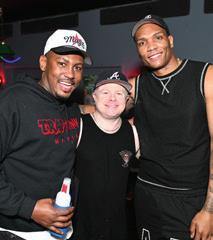
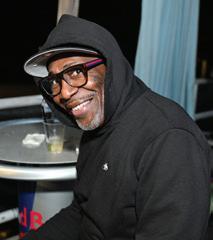
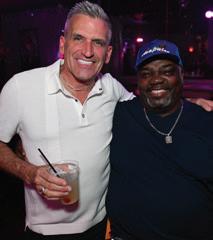
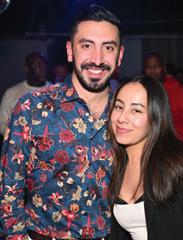
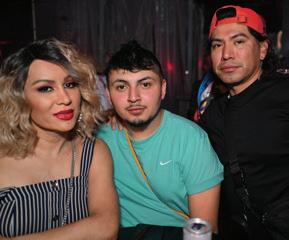

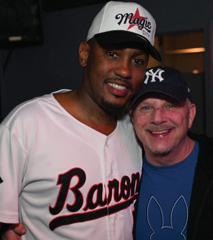
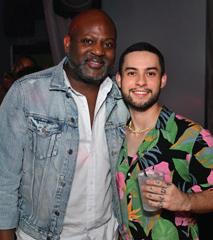
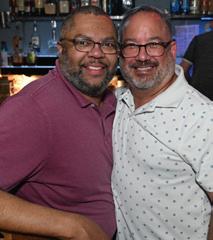
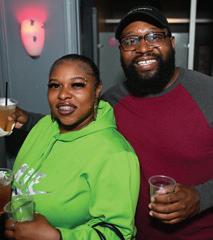
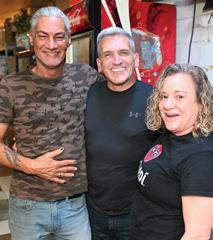
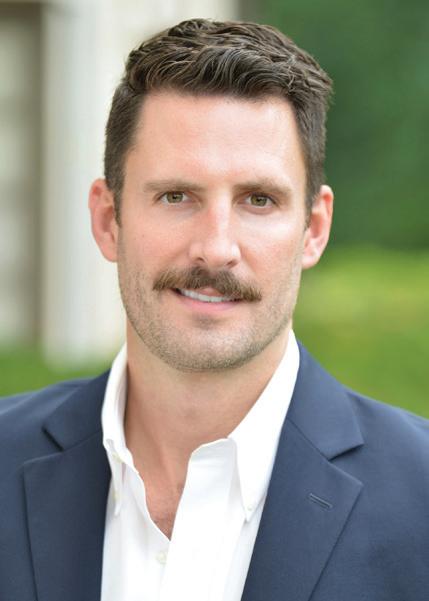
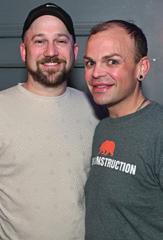
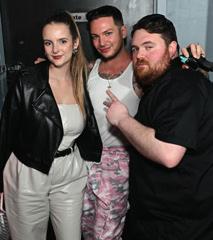
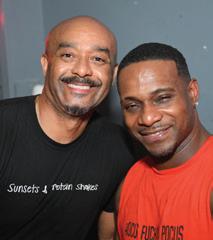
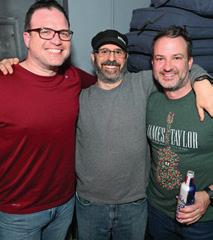
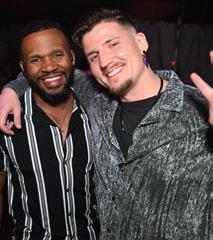
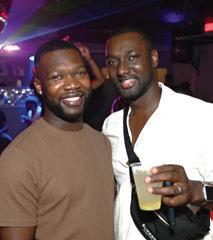
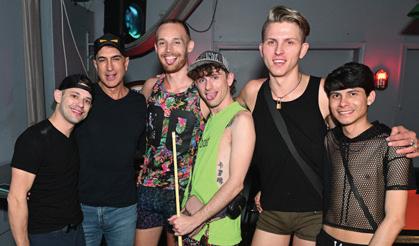

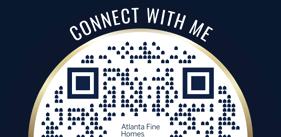
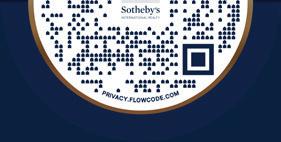


























































































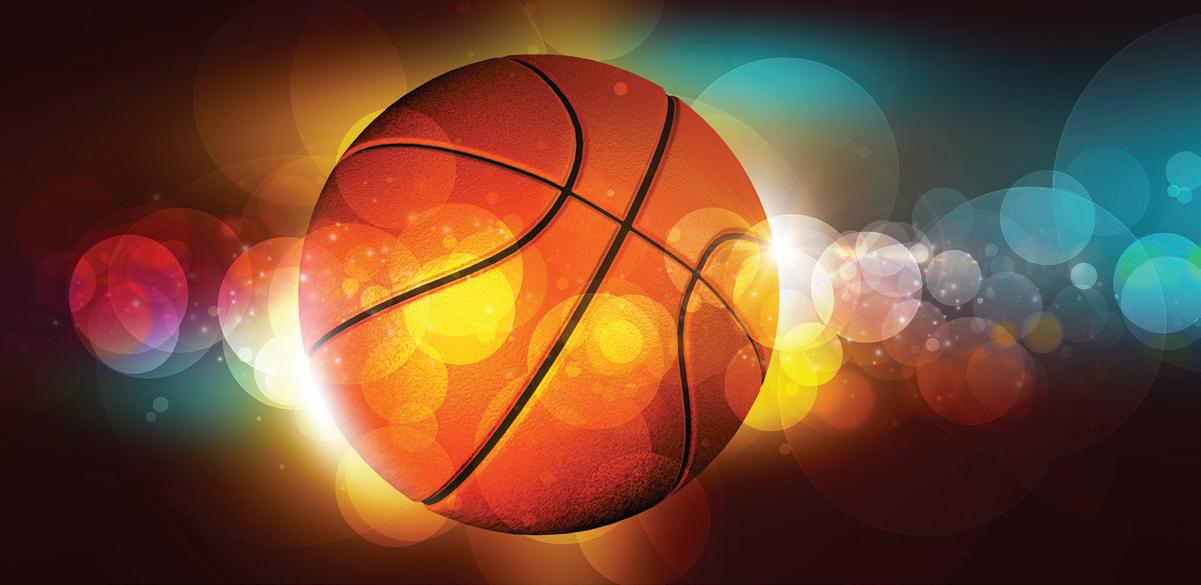





















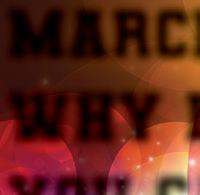
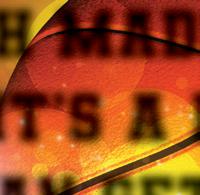
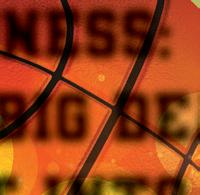
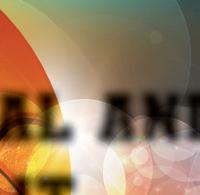

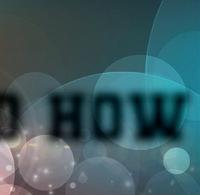

Edited by Mikkel Hyldebrandt
Every March, the U.S. is swept up in one of the most thrilling, unpredictable, and downright chaotic sporting events of the year—March Madness. This NCAA men’s basketball tournament brings together 68 college teams in a high-stakes, singleelimination battle for the national championship. Whether you’re a seasoned basketball fan or someone who’s never watched a game in your life, March Madness is a spectacle worth experiencing. And yes, even if you don’t consider yourself a sports person, there are plenty of ways to get involved, especially within the LGBTQ+ community, where sports culture is becoming more inclusive and welcoming than ever.
For sports fans, March Madness is the ultimate combination of skill, drama, and unexpected twists. The single-elimination format means that one bad game can send even the top-ranked teams packing, creating legendary underdog stories and Cinderella runs. The unpredictability keeps people glued to their screens, making every game feel like an emotional rollercoaster.
But beyond the games themselves, March Madness is a cultural phenomenon. Office pools, friendly rivalries, and bracket challenges bring people together, giving everyone—casual fans and diehards alike—a stake in the tournament. Plus, with games airing practically non-stop over a few weeks, it’s an easy and fun way to bond with friends, family, and even strangers at your favorite sports bar or LGBTQ+ inclusive hangout.
Even if you don’t know a single thing about basketball, there are plenty of ways to embrace the madness. Here’s how:
The bracket challenge is one of the most exciting ways to engage with March Madness. Whether you pick teams based on their stats, school colors, or which mascots look the fiercest, making your selections can add a personal investment to the tournament. Many LGBTQ+ organizations and sports bars host bracket challenges, giving you a fun way to compete and connect with others.
More LGBTQ+ spaces are embracing sports culture, and you’ll find bars and community centers hosting March Madness watch parties. Atlanta’s Woofs, Chicago’s Sidetrack, and New York’s Boxers are just a few LGBTQ+ sports bars that go all out for the tournament. Watching the games in a welcoming space can make the experience even more enjoyable—especially with themed cocktails and halftime drag performances thrown into the mix.
There’s something inherently queer about rooting for the underdog. Many lower-seeded teams defy expectations, and cheering for the scrappy team no one believed in is an
experience that resonates with LGBTQ+ folks who know a thing or two about overcoming odds. Keep an eye out for the teams that shock the world—you might just find yourself emotionally invested in their journey.
Even if you’re not a basketball expert, March Madness is a great excuse to gather friends and have a good time. Host a game night, wear your chosen team’s colors, or make a themed playlist for halftime dance breaks. If you’re into fashion, consider creating a “Game Day” look—there’s nothing stopping you from showing up to a watch party in a fabulous basketball-inspired ensemble.
While college basketball is still catching up in terms of LGBTQ+ representation, there are growing numbers of out and proud athletes who are paving the way. Keep an eye out for stories about LGBTQ+ players and coaches who are making waves in the sports world. Supporting them is another way to connect with the tournament on a deeper level.

